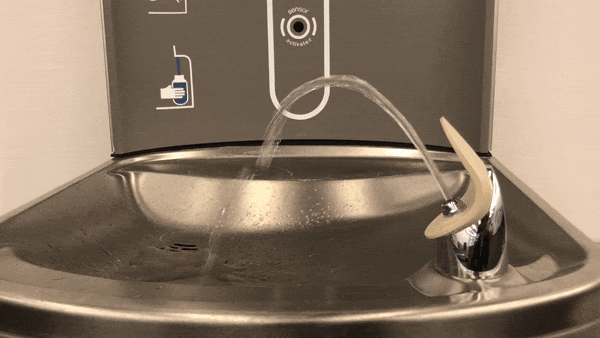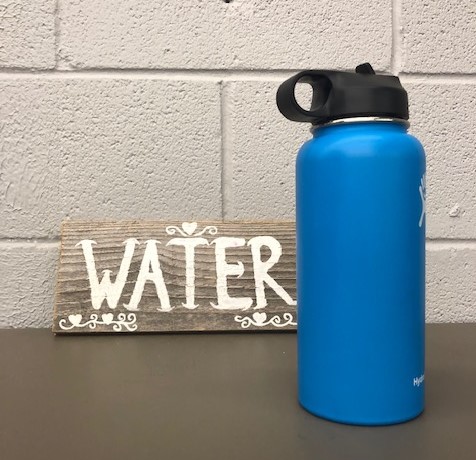In my blog post last week I shared practical, action-based strategies for helping with Parkinson’s brain fog. I received a lot of positive feedback from people who tried those tips. Now I would like to dive into some nutritional tips. I want you to know that one of the simplest ways to combat brain fog (regardless of whether you have Parkinson’s or not) is HYDRATION!

That’s right! You’ve heard me talk about water before and all of its health benefits. Water helps with everything from maintaining healthy blood pressure to being able to Poo daily.
As you age your sense of thirst lessens, and your kidneys are not able to conserve body fluids as well. If you are over the age of 50 you may feel tired and lethargic rather than thirsty, and may opt for a nap instead of a tall glass of water. Even mild dehydration leads to a loss in concentration and cognitive performance. Studies have shown that dehydration can affect your motor skills, awareness, and even your mood.
How Does Water Affect Your Brain?
Your brain is about 75% water. When your brain is well hydrated you are able to think faster, focus better, and have greater clarity and creativity.
Water is also essential for delivering nutrients to the brain and for removing toxins. When the brain is fully hydrated it will ensure better concentration and mental alertness.
Everyone needs a different amount of water per day. The amount of water you need is based on many factors including your gender, height, weight and activity level. A basic formula to calculate your water consumption is to take your weight and divide it in half. That number is how many ounces you should shoot for. For example:
150 LBS / 2 = 75 LBS. You should drink 75 ounces of water per day.
Thirst is not a good gauge of how much water your body needs, especially for people with Parkinson’s disease. The color of your urine can help you determine your hydration level. If your urine is clear to very light yellow (like lemonade) and has little odor, you’re well hydrated. The darker and smellier your urine is, the more dehydrated you are. Think “PEE PALE”.
Symptoms of mild dehydration look out for:
- Dry, sticky mouth
- Sleepiness or tiredness
- Thirst
- Headache
- Lightheadedness, irritability and confusion
- Low blood pressure
How to Stay Hydrated

- Always carry a full water bottle with you. Drink it all, and refill it.
- Infuse your water with fruit, vegetables or herbs for a tasty alternative to soda or sugary drinks.
- If you enjoy carbonated beverages, try unsweetened sparkling water.
- Set an alarm on your phone to remind you to drink water throughout the day.
- Drink a glass of water when you wake up in the morning.
Sometimes thirst is confused with hunger. Try drinking a glass of water when you feel hungry (before eating). If you are still hungry afterward, then find some nutritious food to eat!
Anytime you are feeling faint, tired, or dizzy, don’t just go lie down. Consider that your body is trying to tell you something — and it could be that it’s thirsty. Go get a glass of water. It’s a game changer!

Resources:
https://shcs.ucdavis.edu/blog/archive/healthy-habits/your-brain-h2o
https://www.johnmuirhealth.com/health-education/health-wellness/senior_health/dehydration-aging.html
